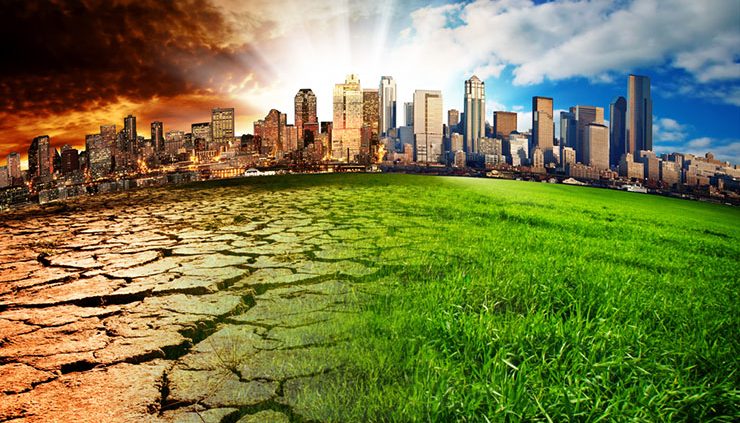
By Peter Makwanya
THE adaptive measures and mitigation capacities that dominated the global climate narratives have not translated to success stories stakeholders wished for.
Although the global climate initiatives are ongoing, there should come a time when climate success stories should be firmly in the public domain.
The authors of climate demises are none other than giants from both poles.
These strong institutions have invested so much in the art of diplomacy, instead of resilience and mitigation that the global climate stakeholders wish to see. Any climate stakeholder who goes against the parameters set by the rich polluting nations is viewed as undiplomatic.
Instead of negotiators from the Global South pushing environmental agendas at these COPs, they thrive on sounding diplomatic in order to appeal to their powerful negotiation partners.
The community climate renewals in the Global South are envisaged to focus on urgent climate action strategies, accelerate environmental regenerations and job creation.
Ever since the world started to interrogate climate change issues, not much success stories have been realised. This is due to militating procedural, structural and institutional glitches designed to make climate adaptation difficult. The intersection between poverty and COVID-19 in the Global South has also made it difficult for communities to come up with successful community renewal narratives, resonating with unfolding impacts on the ground.
- Chamisa under fire over US$120K donation
- Mavhunga puts DeMbare into Chibuku quarterfinals
- Pension funds bet on Cabora Bassa oilfields
- Councils defy govt fire tender directive
Keep Reading
It must also be known that climate opportunities can only happen in a healthy environment not a sick, polluted and intoxicated one. Community renewals in the Global South will also contribute to the wholesale healing of the poisoned world.
The idea is not to sound negative but just to bring out the point that we have only one earth which requires transitions and community renewals from climate change impacts. After these have been realised then the success stories would be propagated which contribute to positive outcomes.
It is in the public domain, that global donors have pledged climate finance and green funding opportunities for developing countries especially those in the Global South.
Ever since green finance has been pledged, the whole process lacked assurance, hence the money has been selectively released not in the manner the prospective recipients envisaged. Of course, it is their money and it is within their interest how best to share it, delay it or never release it at all.
Several billions of dollars have been released to deserving countries by global green financiers but community renewals do not seem to improve. Countries that have benefited from the green finance gesture, cannot point out what the money has done to the environment and people’s livelihoods.
Everyone knows where climate finance comes from, including where it is going and who receives it but communities are not clear how the money is used to improve their livelihoods or how it can contribute to success stories of community renewals. Within the long list of failures are glimmers of hope. Meeting the urgent ecological needs of the global climate change has always been fundamental. This can hardly happen in the background of weak commitments.
Most of the century-old climate-driven challenges in the Global South are still visible and unfolding to this day. Challenges in the form of water scarcities, energy poverty, unbearably increasing temperatures and plagues, among others continue to make life difficult for the people of the Global South.
Against the background of little financial inflows from rich polluting nations, in terms of self-renewals, the Global South also needs to play its part, as an important stakeholder. For this reason, no one will renew communities in Africa unless the African communities themselves take the initiative and lead the way.
The Global South should be seen to be making efforts towards community renewals from within their domestic initiatives, rather than wait for the global purse that sometimes never come.
Glossed and murky deals by rich polluting nations in the form of carbon markets and credits can hardly lead to community renewals and transformations.
Local communities, which are supposed to benefit from these green-washing schemes, cannot relate to or connect anything to their environment. They remain in the dark while on paper, the schemes are operational.
Forest community regenerations have not been able to tell stories that resonate with the people’s climate action strategies, livelihood aspirations, among others. While communities are ever geared for climate community renewals, regenerations and greening, in the Global South, they cannot integrate issues of climate justice for sustainable just transitions.
They lack competencies on climate justice issues, technology transfer for capacity building, foreign direct investment and accountability but nobody has bothered to explain anything to anyone.
A wide range of climate injustices continue to accelerate, both from the parent governments’ point of view and polluting actors and their proxies in the emergence of carbon footprints around sectors globally.
The problem of climate justice issues in the Global South have been institutionalised and normalised in such a way that communities can hardly separate climate justice from climate injustice. This is due to the fact that most governments in the Global South are at the forefront of perpetuating community environmental justices on their citizens.
- Peter Makwanya is a climate change communicator. He writes here in his personal capacity and can be contacted at: [email protected]











